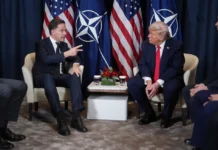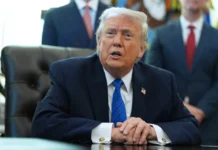
Argentina’s President, Javier Milei, has issued a sweeping executive decree to tighten immigration controls, drawing strong comparisons to former U.S. President Donald Trump’s hardline approach.
Milei’s government, aiming to “make Argentina great again,” announced that immigrants must now spend two continuous years in the country or make a substantial financial investment to qualify for citizenship. Think of it like applying for a club membership, only now, you must either contribute significantly or remain consistently active to earn full rights.
The decree also demands that those seeking permanent residency show proof of income and clean criminal records. Furthermore, the judiciary has been asked to expedite lengthy immigration cases. The government will now have greater power to deport individuals for minor offenses, illegal entry, or falsified documents—actions that once required more severe criminal convictions.
A controversial change is the introduction of charges for foreigners accessing Argentina’s public health and education systems. Previously a beacon of open-handed hospitality, Argentina had allowed free access to these services for non-citizens since 2003. Now, foreign patients and students may need to start paying, and travelers must carry health insurance. Adorni, Milei’s spokesperson, likened the system to a leaking barrel, where unchecked use by non-residents threatens the resources meant for citizens.
Critics argue this move challenges Argentina’s long-standing tradition of openness, nurtured over decades of welcoming immigrants from Latin America, Asia, the Arab world, and recently Russia. They fear the country is closing its doors just as global migration pressures rise, with Milei’s decree representing a sharp turn inward during a time of austerity and economic strain.
For many, this policy shift feels like replacing a community garden, where all were welcome to pick and plant—with a fenced plot, now gated and ticketed.
Written By Rodney Mbua


















